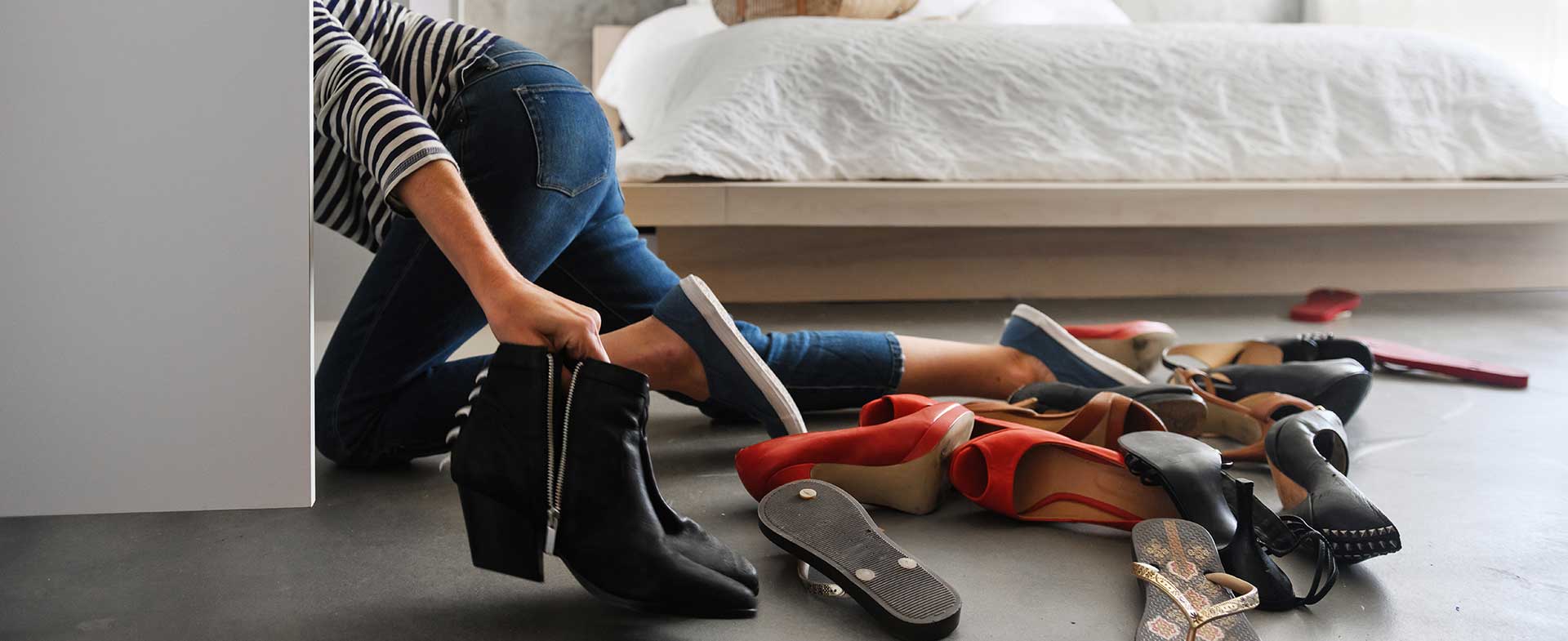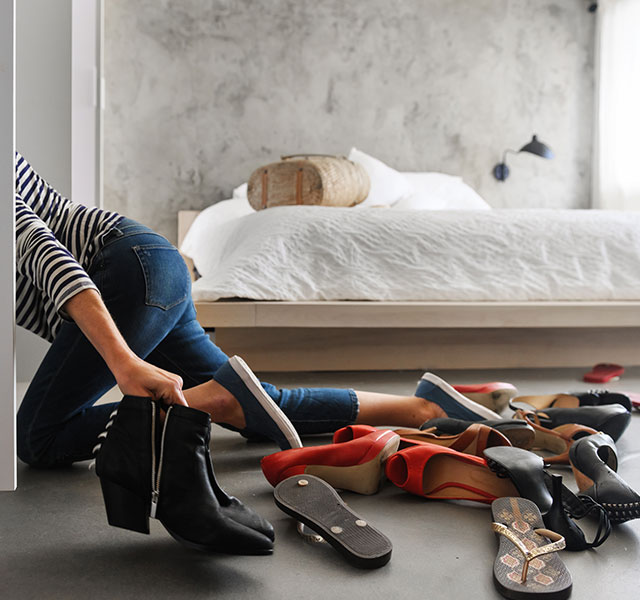Your feet take more than their fair share of abuse. With every step you take (and hopefully you take lots of them every day), your feet absorb several times your body weight. That’s a lot to ask. The least you can do is find comfortable shoes that help them do their job of supporting you all day—without causing pain.
“A comfortable, supportive shoe is your foot’s best friend,” says Blake Brannick, DPM, a podiatrist and foot and ankle surgeon at Henry Ford Health. “And the size and shape of your feet does change over time.” To ensure you’re getting a shoe that fits, it’s worth having a professional measure your feet every couple of years.
Finding The Right Shoes For Your Feet
In an ideal world, everyone would wear a supportive, cushioned, well-fitted sneaker every time they leave the house. Whether you’re exercising or just walking around the grocery store, a supportive shoe is the key to keeping your feet healthy and injury-free.
Here’s what to look for in a shoe:
- A stiff sole: If you can bend the shoe in half, it won’t do a good job of supporting and protecting your feet while you walk.
- Good cushioning: You need enough cushioning to help absorb the ground forces your foot receives with each step.
- Arch support: When your arch isn’t supported, the Achilles tendon stretches and stresses as you put weight on it. That can lead to tendon injuries such as plantar fasciitis.
- Room for your toes: Your shoes should be wide enough in the front that your toes fit freely without feeling squished.
- Laces: “You want laces that tie up and form to your foot to add support,” says Dr. Brannick. “That helps relieve stress on your tendons while you’re walking.”
Why Barefoot Isn’t Best
Walking barefoot all day seems like the most natural way to be. After all, it lets your feet breathe, leaves them unconstrained by shoes and fully connected to the ground. Unfortunately, in this case, natural doesn’t mean better.
“Being barefoot puts a lot of extra stress on your feet because there is nothing between you and the ground to help absorb the shock of each step,” says Dr. Brannick. And when you’re walking without shoes, you’re exposing the skin on your feet to potential injury or infection. “People with diabetes should especially avoid walking barefoot,” he adds. “They often experience a loss of sensation in their feet and can get a cut or other injury that they don’t notice."
Dr. Brannick recommends finding a supportive sandal or slipper you can wear inside the house that will protect and cushion your feet.
Some Shoes Are For Special Occasions Only
Sadly, many of the shoes we like to wear—for fashion, comfort or convenience—are doing our feet more harm than good.
One of the worst offenders is high heels. Everything about high-heeled shoes seems designed to make your feet cringe. “A high heel forces all the weight of your foot into the front of the shoe,” says Dr. Brannick. “That means you’re walking with your weight on a very small surface with very little support.” A wedge heel is a slightly better option, only because it helps distribute your weight throughout the foot. With either type, the higher the heel, the more you increase your risk of twisting and injuring your ankle.
Even if the shoe is flat, try to avoid ones with toes that are tapered or pointed. That shape puts pressure on the big toe joint, which can lead to problems like bunions and hammertoes. “You don’t want to wear shoes that force your foot to change function and position,” says Dr. Brannick.
And there’s bad news about a summer favorite: While flip-flops may seem like a great everyday option in warm weather, podiatrists universally hate this beach classic. “Not only do they offer zero support to your foot, they also require your toes to grip the shoe with every step,” says Dr. Brannick. “Constantly over-firing those little muscles can lead to overuse injuries.”
For Feet That Need Some Extra Help
The majority of people don’t need custom-made insoles (also called orthotics) to stave off foot problems. “But most would benefit from over-the-counter insoles,” says Dr. Brannick. Skip the cushiony gel inserts and opt for an insole that’s rigid enough that you can’t bend it in half. He also suggests choosing full inserts that support your entire foot.
If you have new pain in your feet that doesn’t go away, pain during your first few steps out of bed or pain that travels from your foot to your ankle, it’s time to see a doctor. A podiatrist can help diagnose issues and treat them before they get worse. “You don’t want to wait until the condition worsens and needs surgery or other invasive treatment,” says Dr. Brannick.
To find a podiatrist at Henry Ford, visit henryford.com or call 1-800-436-7936.
Dr. Blake Brannick is a podiatrist and a foot and ankle surgeon who sees patients at the Henry Ford Allegiance Orthopedic & Neuroscience Center in Jackson.



